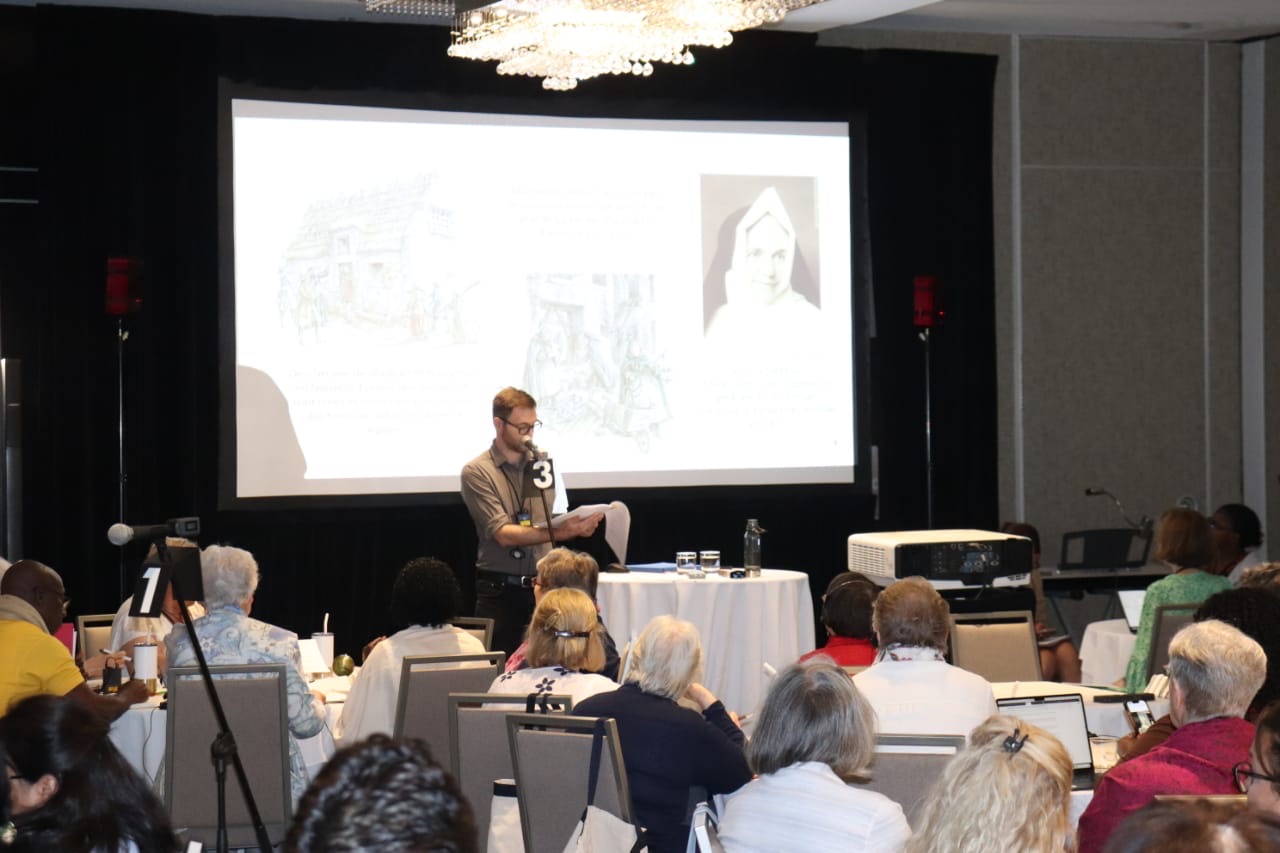CND Forum – Day 3 – Monday, August 26
Led in prayer by Region Nuestra Senora de Guadalupe we began the day giving thanks, making ourselves available to God with hearts large enough to love and strong enough to fight.
Catherine Larochelle spoke to us about the role of schools in the process of colonialization. She shared her PHD research in which she asked: What image of the “other” was passed on to students in the Quebec schools during the nineteenth century? How did schools serve the nationalism and imperialism of that time? She offered examples of maps used in geography classes that divided the world into colours according to colonial territories, and of student work which demonstrated the stereotypes and discriminatory descriptions absorbed by the children. She spoke of how “Otherness” was used to engage students, offering fascinating curiosities from “exotic” cultures and emphasizing the European superiority over other races and peoples. She reminded us that schools were designed to serve the dominant culture and political structures, and to separate those who belong from those who are outsiders. She posed for us the question: how can we challenge this lingering colonial heritage and move schools toward a model of education that liberates and empowers?
This question informed the panel of speakers who each offered a brief glimpse into three CND schools. First in Notre-Dame-des Apotres, where hearing the call to detect and fight against marginalization, self-esteem is the first priority. In Maria Province there has been a shift in focus to the spontaneous and independent growth of students. Through daily meditation students learn to discover their individual dignity. We found in the words of three poets the elements of liberating education that animate Blessed Sacrament; education that encourages students to walk their own path in hope, standing up against injustice, knowing God’s love, mercy and compassion.
After lunch we were reminded that this has not been the story of CND schools in the past. Our history as recorded in our archives and pictured in images reminds us that history is not neutral. During three afternoon workshops, participants discovered how CND Archive Services have embarked on a thoughtful and challenging process to address colonial elements contained in their holdings and to transform their bias and discriminatory practices. Resisting the pressure to be “productive”, they apply a reflective process that includes a cultural humility, patience and care, transparency and collaboration. For example, images of Marguerite were shared in one workshop with an invitation to look with new eyes, to consider the biases of the artist and the reason the piece was originally created. History is not ignored or rewritten but neither must we reduce ourselves only to our shadows. Context in all cases is everything.
A day rich in theory and practical examples closed in prayer and song, as together we exhorted Mary to walk with us, so that we as Church can walk with the human family.
Bingo tonight!
